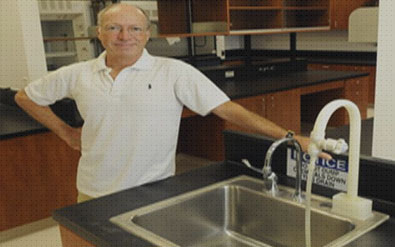A Davis company received a $40 million investment from two major philanthropic foundations to market and distribute its infant nutrition product around the globe.
Company representatives said they’re optimistic this is the last investment round they will need to scale up sales and reach profitability.
Evolve Biosystems’ CEO Tim Brown said the Bill & Melinda Gates Foundation and the Li Ka Shing Foundation, a division of Hong Kong-based Horizons Ventures, were the two major investors. The Gates Foundation’s investment came after the organization funded a study of Evolve’s product Evivo and potential benefits for infants in Bangladesh last year. Horizons Ventures previously invested in Evolve’s seed capital round of $9 million in 2015.
Evivo went on the market in the U.S. after receiving approval from the Food and Drug Administration last year. The product is sold on Amazon.com. Evolve also has a license to sell Evivo in Canada, but Brown said the company wants to focus on the U.S. before expanding into other markets.
“Horizon is very anxious to get our product into Asia,” Brown said. “We’re confident this last investment will drive us to profitability.”
Brown declined to state how many units of Evivo have been sold, or how much revenue Evolve has generated, but he did say in an interview that “thousands of babies have taken Evivo in the U.S.”
With the new $40 million in capital, Brown said Evolve plans to focus on getting its product into hospitals and neonatal care centers. The company also plans to use the funding to educate consumers and medical professionals about Evivo’s benefits, and the science behind it.
Evolve chief scientific officer David Kyle said development of Evivo started after University of California Davis scientists made an important discovery 15 years ago: A beneficial bacterium — called B. infantis — that aids infants’ immune systems was on the verge of extinction, especially in developed countries like the United States.
Studies by Evolve and the university suggest infants who lack the bacteria are more prone to developing severe allergies, and chronic ailments like asthma and diabetes, Kyle said. He said babies receive the bacteria while passing through their mother’s birth canal; children born through Cesarean sections don’t receive it. But Kyle said even children born vaginally are not exposed to enough of the bacteria because a century’s worth of antibiotic use has been killing it.



